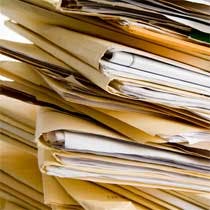Not so long ago the answer would be simple: a small business needs an accounting package and not an ERP System. Today, the size of your business does not necessarily drive the decision – a small business can today be just as complex as a large one.
When looking at your business I think it’s important to ask three questions:
- What are your plans and when will you grow?
- What is your business?
- How many spreadsheets do you use to run your business?
So let’s look at the two contenders.
Accounting Packages
At their core they deal with accounting and finance data. Accounting packages summarise, analyse and present financial data and information on a company. The software records the accounting process and accounting operations of a business. The financial statements, comprising the balance sheet, income statement and statement of changes in financial position, can be easily prepared using accounting software.
The accounting software has different functional modules. These include the general ledger that supports the financial operations of the company, accounts payable, accounts receivables and management of cash-flow.
As companies grow so do their needs, so accounting packages will support multiple currencies, multiple locations and subsidiary companies. An accounting package can be extended to include functions for managing people and payroll, stock management for wholesalers, retail point-of-sale for shops or job and project cost functions for service industries. At its core, these functions are viewed through the finance lens.
Enterprise Resource Planning (ERP) Packages
An Enterprise Resource Planning System (ERP) aims to deliver in a single system the capability to manage and automate most if not all of a company’s business processes. ERP systems are made up of a range of functions such as finance and accounting, manufacturing, supply chain, warehouse and human resources. In many businesses these were separate systems and moving information between them was difficult, if not impossible.
At the centre of an ERP is a database that includes all the company data and the different functions utilise different parts of the database. So the customer records will include address details, contact details, a list of products they have etc. The strength of an ERP is that customer records can also have the specific price list for that customer associated with it – so if they order something, the price quoted is correct and will be automatically reflected in the accounts package.
In essence, an ERP system provides you multiple ways to look at your business.
Which one is right for you?
Let’s go back to the earlier questions:
1. What are your plans and when will you grow?
Typically, a small business will start with an accounting package and as the business grows look towards an ERP system. However, I am aware of a two-man company that intended to grow quickly and saw ERP as an enabler of that. Rather than implement an accounting package now and then upgrade later, it may make sense to start with an ERP.
2. What is your business?
If you are a wholesaler or distributor and work with large retailers it may well make sense to “do” ERP so that you can exchange information rapidly and automatically with this important customer.
If you run a high-volume web business that imports products from overseas and need to guarantee deliveries then an ERP may suit, but if your business is simple and not moving high volumes then an accounting package may be more appropriate for your needs.
3. How many spreadsheets do you use to run your business?
Companies tend use spreadsheets to ‘glue’ together data from different systems. My general rule of thumb is that if you use less than ten spreadsheets then your business should be okay with an accounting package. If you use more than twenty you need to seriously look at an ERP. If you are in-between then look at both extending an accounting package and an ERP to see which suits you best.
Summary
One of the terms often held up as a benefit of these systems are “a single source of the truth”. The processes to run the business are held in the systems, this is then accessible and shareable to all relevant staff. This reduces the amount of cross-checking and reworking of activities, saving time and money and allowing you spend more time on activities that grow your business.
When do you need an to look at them? Typically, if a business is running on spreadsheets and when you find yourself spending too much time arguing about spreadsheet version is correct, then it’s time to review what you’re doing.

